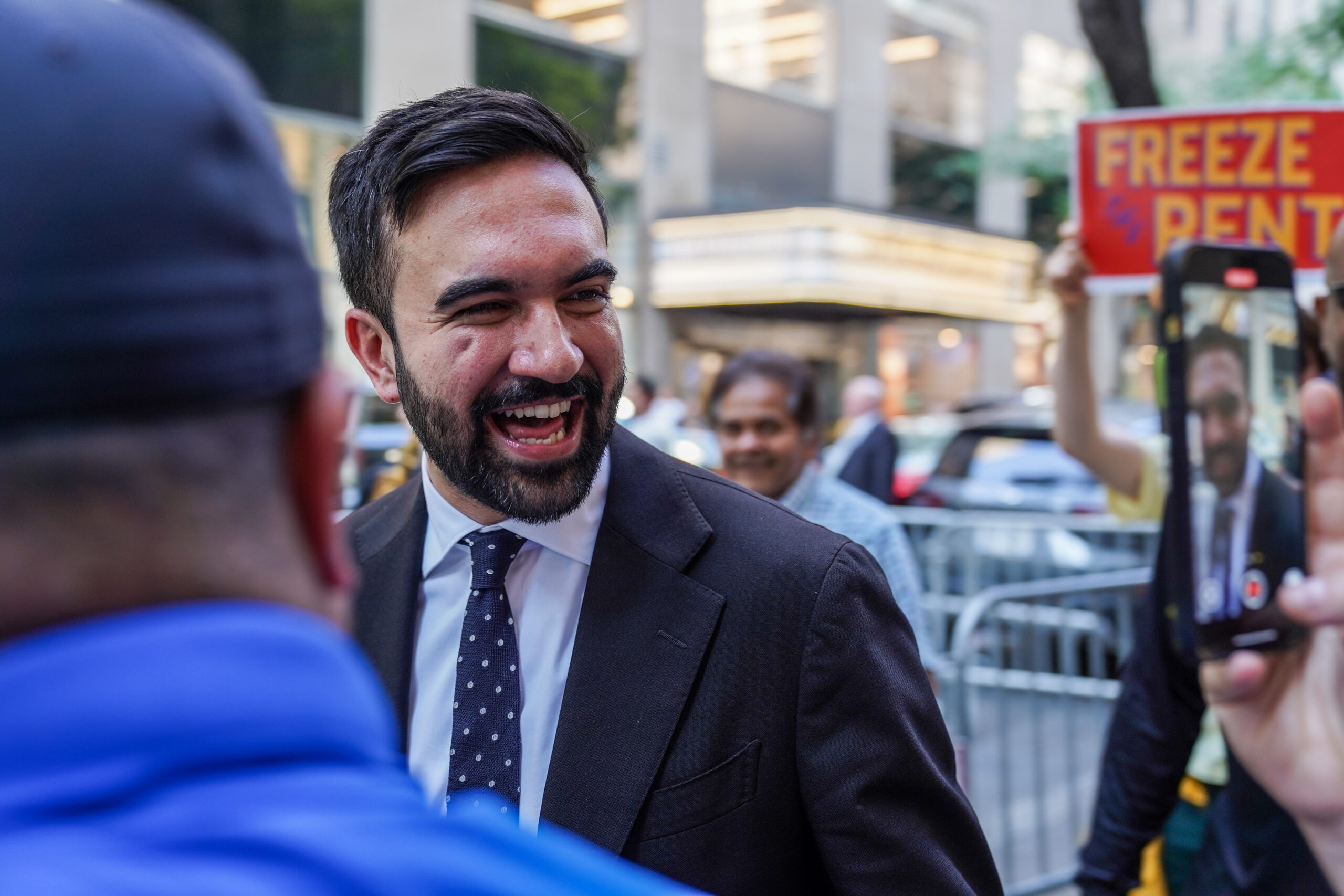Britain Can Have Its Own Mamdani. First It Must Move on From Corbyn
On to pastures new.
by James Meadway
25 June 2025

Zohran Mamdani has won a sensational, era-defining victory in the New York Democratic mayoral primaries, tearing up the rulebook and redrawing the political geography of the entire city. From a little-known New York assembly member, polling in the single digits just three months ago, Mamdani went on to not only defeat former governor Andrew Cuomo, scion of a New York political dynasty and beneficiary of a record-breaking $25m in campaign funding, despite the US department of justice accusing him of sexual harassment. The city’s oligarchs began to panic.
Mamdani beat Cuomo on a programme that was radical, proposing bold new solutions to the city’s cost of living crisis by taking on and taxing its wealthy, and without giving an inch to the barrage of smears he was subjected to. It’s a genuine moment of hope – the most global and perhaps the most influential city on the planet (sorry, London) now has, as the top of its political leadership, a 33-year-old Muslim and self-described democratic socialist. As Mamdani said in his victory speech, quoting Nelson Mandela: “It always seems impossible until it is done.”
What’s crucial here aren’t the good vibes radiating across the Atlantic, pleasant as it is to wiggle our little hands in the glow. What matters is how we can capture some of his success – just the merest soupçon, the tiniest little morsel, please – and bring it over here. That means understanding what happened, what we can learn – and what we can reproduce in the UK.
In his latest Guardian column, Owen Jones flagged “messaging, medium and movement” as the secret to Mamdani’s win. I disagree. Owen is a brilliant political communicator – it’s no surprise he prioritises brilliant communications. And let’s be clear: Mamdani’s campaign was an absolute masterclass in political comms, from his talkshow appearances to his TikTok account, his walks through the city to his Eid gifs targeting the auntie vote.
One of these social media clips was outstanding: the candidate, in front of a row of late-night takeaway vans, eating his chicken and rice whilst noting it now cost $10 instead of $8. He interviewed the owners, who complained about rising prices and, especially, the backlog of applications for licences at the city council, meaning they had to pay extortionate fees to operate to existing licence holders. Mamdani then explains to the camera that he has a stack of legislation ready to go that would free up the licensing system and bring down the price of the food he’s eating. “It’s time to make halal eight bucks again,” he tweeted.
It’s a brilliant video, but what makes it so isn’t only the charismatic candidate or slick production – both matter, but neither would without the content. And the content is pitch-perfect: food prices are an everyday problem, familiar to at least some subset of potential voters, for which the candidate has a neat solution.
Notice that he is casting against lefty type: he’s the socialist who’s going to remove red tape for small businesses. He’s identified an important small business vote, and devised a policy to get out there and win it. It wasn’t one of his flagship pledges (like a rent freeze or city-owned grocery stores), but it was there and it mattered to the people it was supposed to matter to.
Brilliant comms is downstream from policy, and policy is downstream from strategy. “Strategy” has become almost a dirty word for some on the English left, but if we want to win, we need to think about what constituencies we are appealing to, since they won’t be the same as even a decade ago, and develop policy appeal to them.
Likewise, policy itself has to address real-world issues. Mamdani focused on affordability – addressing the cost of living allied, as climate think tank director Batul Hassan argues, to the practical needs of a city facing climate breakdown. This is “eco-populism” in action.
And, it’s appealing but too easy to attribute the victory to Mamdani’s evident personal qualities – his weapons-grade charisma and stiletto-sharp debating skills among them. He’s also displayed significant personal courage in confronting the Islamophobic filth and baseless lies hurled from the gutter to the heavens, from online trolls to the tremendously respectable late-night talk show host Stephen Colbert, who smarmily forced their interview back into the antisemitism smears.
It shouldn’t be underestimated just how much people see this courage, and respect it – if someone tells me they’re going to fight on my behalf, I want to know if they can actually fight. Facing the barrage, Mamdani didn’t buckle. If anything, the smear campaign only made him stronger (compare with Keir Starmer, who seemingly never stops buckling).
It’s not too surprising that a certain amount of swooning and pining can be observed over here. The English left’s forlorn search for a charismatic figurehead to rescue it from the slough of post-Corbyn despond continues. But this misses the point. We won’t find anyone like Mamdani until we have the structures that make finding that person (or people) possible. It’s striking how bad we have been at this until now: where are our generational equivalents of Mamdani or, for that matter, and wherever her politics have ended up, AOC? Who are the millennial figures of a similar stature over here? Only the Greens’ Zack Polanski has been bold enough to make the pitch.
The few MPs who could do it remain trapped in the sealed tomb of the Labour party, refusing to leave. Meanwhile, it’s becoming increasingly odd to keep placing hopes of leadership on a selection of men now pushing into their seventh decades and beyond. For a while, it was Mick Lynch, who announced his retirement from politics last year; more recently, the yearning has swung back to Jeremy Corbyn, who remains an MP but who will also be over 80 by the next election. The continual demand that leaders exhibit decades of past struggle before they can be “trusted” means, in practice, that we are killing off the chances of a generational shift in leadership, which is what we need.
To generate that shift means, first, breaking out of the Labour party and its orbit. Second, it means building the institutions on the ground – political organisations that contest elections – that can start to find people who might be able to take up the baton. Mamdani joined the Democratic Socialists of America only in 2017. That’s the kind of accelerated political education we should be aiming to generate.
Organise, organise, organise. That’s what we need to do, and we need to do it at scale. The left in New York has been getting its act together since the middle of the last decade. It’s worth reading this account by Ross Barkan, who had Mamdani as his campaign manager for his New York senate run in 2018. Though ultimately unsuccessful, the campaign was huge: in just one week at the end of May, volunteers knocked on 45,361 doors across the city. 26,425 volunteers signed up. That’s the level of organising that we need.
Can it happen here? Of course. The local elections next year are a prime target, as discontent with Labour boils over. London is up for grabs. It’s impossible until it’s done.
James Meadway is an economist.


